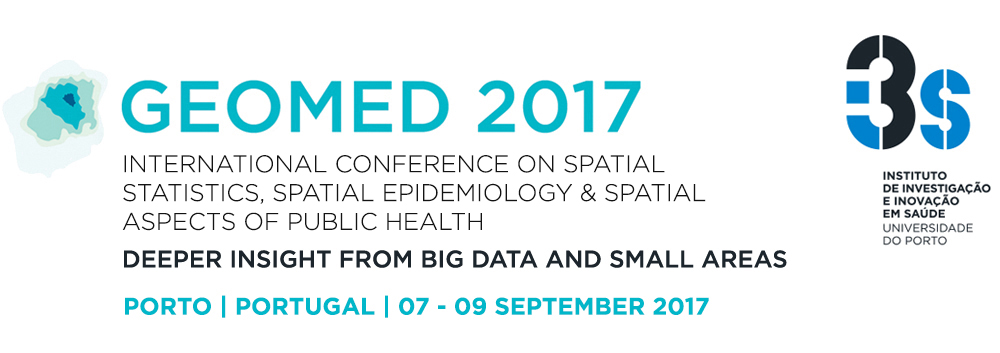
SPEAKERS
Speakers Origins
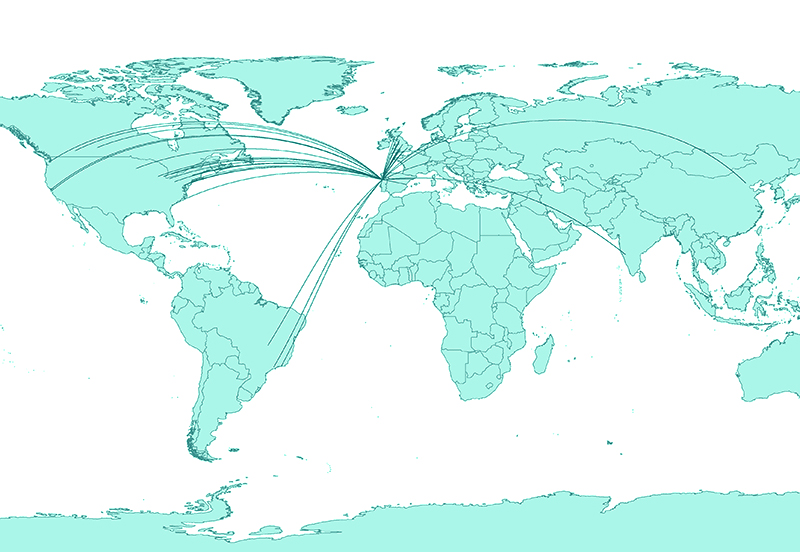
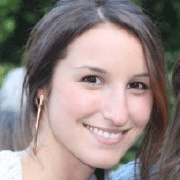 |
Allison LieberAllison Lieber is a Program Manager on the Google Earth Outreach team, where she leads Google’s efforts to support nonprofits, scientists and other public benefit groups using Google’s mapping tools and technology for infectious disease mapping and risk assessment. |
| Allison has a degree in Economics from Washington University in St. Louis, and has been at Google for more than five years, managing the Nonprofits Geo Grants Program and other initiatives. | |
 |
Ana Corberán-ValletDr. Ana Corberán-Vallet received a PhD in Statistics from the University of Valencia, Spain. Her PhD research involved development of multivariate time-series modeling and forecasting techniques. |
| She held a postdoctoral position at the Medical University of South Carolina, where she built on her previous background in statistical modeling expanding upon space-time disease surveillance models. Currently, she is a professor in the Department of Statistics and Operations Research at the University of Valencia. | |
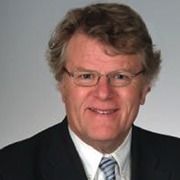 |
Andrew LawsonAndrew Lawson is a Distinguished Professor and Vice Chair for Research at the Department of Public Health, University of South Carolina. |
| He has a background in Geography (1973), Quantitative Methods (1975) and Environmental Science (1986) and a PhD in Statistics (1990). His research interests are manly in the area of spatial and environmental statistics particularly spatio-environmental epidemiology, which include disease mapping. He has published several papers in leading journals and books on spatial statistics. He is a WHO advisor in Disease Mapping and Risk Assessment and an editor- in- chief of Spatial and Spatio-temporal Epidemiology journal. | |
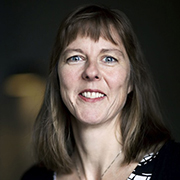 |
Annette Kjær ErsbøllAnnette Kjær Ersbøll is professor at The National Institute of Public Health, University of Southern Dennmark. |
| She is an engineer and has a PhD in statistics. Her primary areas of research are spatial epidemiology and spatial statistics within public health using individual-level register-based health data. | |
 |
Carla Maria OliveiraCarla Oliveira is a mathematics graduate (2002) from the University of Beira Interior (UBI), has a postgraduation in Applied Mathematics for Life Sciences (2004) from the Agronomy Institute of the Lisbon University (ISA), a MSc in Biomedical Engineering (2009) from the |
|
Faculty of Engineering of the University of Porto (FEUP) and a PhD in Public Health (2016) from the Faculty of Medicine of the University of Porto (FMUP). Carla began her professional career in 2002 as professor of mathematics and conducted research in the Institute of Biomedical Engineering (INEB) of the University of Porto in the research group of GeoEpidemiology since 2007, first as a trainee research, then as a MSc student and later as a PhD student and as research assistant. Her doctoral thesis was also developed as a researcher at the Public Health Institute (ISPUP) and the Institute of Health Research (i3s) of the University of Porto. During her PhD Carla was a visiting researcher at the Faculty of Engineering, Mathematics and Physical Sciences of the Exeter University (UK). Carla is currently a researcher i3S/INEB and a lecturer in statistics at the Health School of the Polytechnic Institute of Porto (ESS-IPP), and biostatistician in Blueclinical - Research and Development in Health, Ltd since 2014. Her research interests include statistical modeling and spatio-temporal analysis of health events and statistical techniques applied to clinical trials. |
|
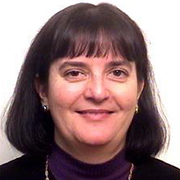 |
Cécile VignollesEngineer in Agriculture and holder of a doctorate degree in Remote Sensing and Agriculture, Cécile Vignolles served from 1998 to 2001 as research assistant at the Space Applications Institute of the EU Joint Research Centre, where she contributed to the development of the agrometeorological bulletin within the “Monitoring Agriculture with Remote Sensing” project. |
| From 2002 to 2005, she worked at SCOT, a subsidiary of Cnes (The French Space Agency) as a research engineer on R&D in Agriculture and Remote Sensing projects. Research engineer at the GIP Medias-France from 2005 to 2008, she was in charge of R&D projects in tele-epidemiology. She has joined the Cnes in 2009, where she is affiliated to the Direction of Innovation, Applications and Science in the 'Earth-environment-climate' team in charge of the "Earth Observation programmes". Within this team, she is responsible of the "Tele-epidemiology" and "Forests" programmes. | |
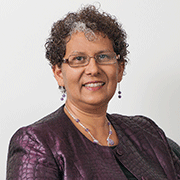 |
Charmaine DeanCharmaine Dean is Professor and Vice-President, University Research at the University of Waterloo in Canada.Dr. Dean was 2007 President of the Statistical Society of Canada, and 2002 President of WNAR. |
| She has served on several grant review panels including for the US National Institutes of Health, the Natural Sciences and Engineering Research Council of Canada and the UK Engineering and Physical Sciences Research Council. She has served on many editorial boards including currently for Biometrics, Environmetrics, Statistics in Biosciences and Spatial and Spatio-temporal Epidemiology. In 2003, Dr. Dean was awarded the CRM-SSC prize; in 2007 she was named Fellow of the American Statistical Association; and in 2007 awarded the University of Waterloo Alumni Achievement Medal; in 2010 she was named Fellow of the American Association for the Advancement of Science and in 2012 received a Trinidad and Tobago High Commission Award. Dr. Dean’s leadership has a focus on accelerating research within the faculty, enhancing and fortifying collaborations with other faculties, with industry, government agencies and the broader community, as well as supporting a superb training environment for students. Her research interest lies in the development of methodology for disease mapping, longitudinal studies, the design of clinical trials, and spatio-temporal analyses. Much of this work has been motivated by direct applications to important practical problems in biostatistics and ecology. Her current main research applications are in survival after coronary artery bypass surgery, mapping disease and mortality rates, forest ecology, fire management, smoke exposure estimation from satellite imagery, and modeling of temporary and intermittent stream flow for flood analysis and predictions. | |
 |
Chawarat RotejanaprasertChawarat received his Ph.D. in Biostatistics at Medical University of South Carolina in 2015 with a focus on spatial epidemiology, his M.S. in Statistics and Stochastic Modeling from the University of California, Santa Cruz and his B.S. in Mathematics from Chiang Mai University, Thailand. |
| Before joining the faculty at Mahidol University, he was a statistical researcher at the Thai National Center for Genetic Engineering and Biotechnology with a research focus on tropical diseases. His research interests include spatial epidemiology and surveillance. | |
 |
Chris DibbenChris Dibben is a Professor of health geography at the University of Edinburgh, is the Director of the Economic and Social Research Council’s Longitudinal Studies Centre Scotland and the Administrative Data Research Centre - Scotland. |
| He has worked on, amongst other subjects, epidemiological studies into recovery after heart attacks, the causes of Low Birth Weight, the survival of drug misusers and the health impact of air pollution. He has also contributed to work on the UK NHS health funding formula and on measuring health inequalities, for example developing the Health Poverty Index for the Department of Health. Other work includes the development of national deprivation indices across the UK and in South Africa and evaluations of government area based initiatives. He also has an interest in the methodological issues that arise from the use of routine or administrative data in research. | |
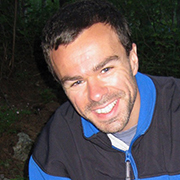 |
Christopher JewellChristopher Jewell is a Senior Lecturer in Epidemiology in the Faculty of Health and Medicine at Lancaster University. |
| His interest in epidemiology began as a veterinary undergraduate at Liverpool, with first hand experience of how spatio-temporal data could be used to inform decision making during the foot and mouth disease outbreak in 2001. Under the Defra VTRI programme, he wrote his PhD thesis on Bayesian inference for dynamical disease models. At Warwick and Massey Universities, he became interested in using Bayesian statistics for epidemic forecasting in both communicable and vector-borne diseases. At Lancaster, Chris’s research focuses on rapid Bayesian methods for decision support during outbreaks. He currently has projects running on influenza, foot and mouth, theileriosis and leptospirosis from a OneHealth perspective. | |
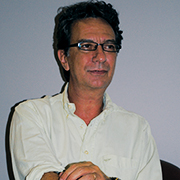 |
Christovam BarcellosChristovam Barcellos is an Health Geographer, specialized in Public Health (1985), PhD in Geosciences (1995). He is a senior researcher at Oswaldo Cruz Foundation, Rio de Janeiro, Brazil. |
| Professor, acting in the Public Health postgraduate program (ENSP-Fiocruz) and health information and communication postgraduate program (PPGICS-Fiocruz). In the past, he worked in the State Secretary of Health of Rio de Janeiro. His main research interests are spatial epidemiology, GIS and health surveillance. | |
 |
Cindy FengCindy Feng is an assistant professor in Biostatistics at the School of Public Health at the University of Saskatchewan and has a PhD in statistics (2011) from Simon Fraser University. |
| Her primary research interest focuses on the development of statistical methods to analyse spatial and space-time data to understand spatial and temporal patterns applied to epidemiology and public health problems. | |
 |
Clive SabelClive Sabel got his BSc (Hons) in Geography from Lancaster in 1990 and an MSc in GIS from Edinburgh University in 1991 |
| In 1999 he completed his PhD under Profs Tony Gatrell and Robin Flowerdew at Lancaster University, using an Exploratory Spatial Data Analysis approach to investigate Spatial and Temporal relationships between environmental exposure and health. Clive has academic interests in spatial epidemiology, spatial statistics, spatial and environmental sensors, the ‘exposome’, Big Data, and working with point-pattern data (often residential location) to reveal epidemiological relationships to environmental exposures. |
|
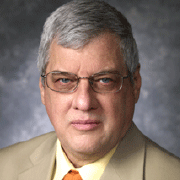 |
Daniel GriffithDaniel Griffith is Professor of Geospatial Information Sciences and a faculty member in the School of Economic, Political and Policy Sciences. He has taught at UT Dallas since 2005. |
| His primary areas of research are in spatial statistics, quantitative urban and economic geography, and applied statistics. Griffith teaches courses about spatial statistics, urban economics and research design. His recent spatial statistical research has focused on public health, emphasizing geographic perspectives in environmental health, medical geography and health policy — more precisely, health environment issues associated with urban and social environments at the local level. Griffith is also a Fellow of the Regional Science Association International, and a past president of the North American Regional Science Council. Griffith was a faculty member at the University of Miami, Syracuse University, SUNY/Buffalo, and Ryerson Polytechnic University in Toronto. While at Syracuse University, he served as chair of the Department of Geography, director of the Interdisciplinary Program in Statistics, and deputy director of the New York State Program in Geographic Information and Analysis. He also was an adjunct professor with the SUNY College of Environmental Science and Forestry, and a member of the Syracuse University Interdisciplinary Program in Statistics faculty. Griffith has published 17 books and monographs, and more than 200 papers, including articles in geography, regional science, statistics and mathematics journals, and 22 book chapters. He has given nearly 200 invited talks, including 46 keynote lectures, and convened/co-convened 27 spatial statistical workshops. He has been the editor of Geographical Analysis since 2008. Griffith was a Fulbright Research Fellow (to the University of Toronto), a Fulbright Senior Specialist (to the University of Alberta), a Guggenheim Fellow, an elected Fellow of the New York Academy of Sciences, an elected founding Fellow of the Spatial Econometrics Association, and a past president of the North American Regional Science Council. He also received Distinguished Research Honors from the Association of American Geographers in 2010. Most recently, the American Association for the Advancement of Science (AAAS) elected Griffith as a Fellow for his contributions to spatial statistics and quantitative geography. | |
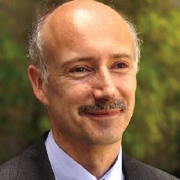 |
David MartinDave Martin is currently Professor of Geography. He has been a member of staff in Geography and Environment at the University of Southampton since 1992. |
| He is the leader of the Population, Health and Wellbeing research group and served as Head of Department from 2000 - 03. He was Coordinator of ESRC's Census Programme from 2002 - 12 and is currently involved in the leadership of three major ESRC initiatives: the UK Data Service, the Administrative Data Research Centre for England and the National Centre for Research Methods. He is also a member of ESRC Council. | |
 |
Denisa MendonçaDenisa Mendonça was graduated in Applied Mathematics, Faculty of Sciences, University of Porto (1976). She joined the Institute of Biomedical Sciences Abel Salazar, University of Porto (1977) and |
| completed her PhD in Biostatistics, Faculty of Sciences University of Exeter, UK (1987). In 1991 she became Associate Professor and in 2006 a member of the Board of Directors of the Institute of Public Health, University of Porto-ISPUP. She was a member of the Scientific Committee of the Master in Public Health, UP and has taught a wide variety of general and specialised topics in Biostatistics at Under Graduate and Post Graduate level. Currently, she conducts research at the Institute of Public Health (Department of Biostatistics/ Biostatistics and Health Metrics Group, EPIUnit) and at the Institute of Biomedical Sciences Abel Salazar involved in PhD project supervision (Applied Math, Biomedical Sciences, Medical Sciences and Nursing Sciences). Her research interests are in applied statistical modelling (particularly: spatial statistics). | |
 |
Duncan LeeDuncan Lee is a reader in statistics at the University of Glasgow, and has a PhD in statistical epidemiology (2007) from the University of Bath. |
| His research develops novel Bayesian spatio-temporal statistical methodology for environmental epidemiology, particularly focusing on quantifying the effects of air pollution on human health and investigating spatio-temporal trends in disease risk. He has led numerous grants and has over 35 papers in these areas, as well as being the author of freely available R software for spatial (CARBayes) and spatio-temporal (CARBayesST) areal unit modelling. Using conditional autoregressive (CAR) priors. He is an associate editor of a Royal Statistical Society (RSS) journal and the Biometrical journal, a member of the ESRC peer review college, a research assessor for the Carnegie Trust, and secretary of the environmental Section of the RSS. | |
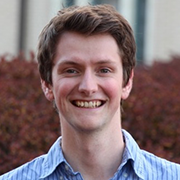 |
Dylan FitzpatrickDylan Fitzpatrick is a joint PhD student in Machine Learning and Public Policy at Carnegie Mellon University. His research focuses on development of scalable statistical machine learning algorithms for pattern detection, motivated by applications in public health and criminology. Dylan earned a BA in Economics from Middlebury College and an MS in Computer Science from Carnegie Mellon University. |
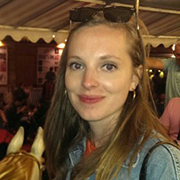 |
Eilidh JackEilidh Jack is currently completing a PhD in statistics at the University of Glasgow. |
| Her research interests lie in disease mapping with particular focus on estimating health inequalities across Scotland. Her aim is to develop novel Bayesian multivariate spatio-temporal models and associated freely available software. | |
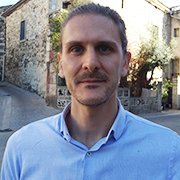 |
Emmanuel RouxEmmanuel Roux is a researcher at the French National Research Institute for Sustainable Development (IRD), in the ESPACE-DEV research unit which develops methods to characterize, model and monitor socio-ecological systems by exploiting remotely sensed data and multidisciplinary knowledge integration. |
| He received his Ph.D. degree in Industrial and Human Automation control and Computer Science from the University of Valenciennes, France, in 2002. His skills concern the data science and his research interests are the spatial modelling of entomological and/or epidemiological data, the objective characterization of the environment and of the landscape from satellite data, the data- or knowledge-driven modelling of the environment-health relationships. He co-supervises or participates to several partnership and research projects that contribute to the construction of cross-border observatories of the vector-borne diseases, between French Guiana and Brazil and within other cross-border contexts. | |
 |
Eun-Hye Enki YooEnki Yoo is an Associate Professor of Geography at The State University of New York (SUNY) at Buffalo and is a member of the National Center for Geographic Information and Analysis (NCGIA). |
| She trained as a quantitative geographer specializing in Geographic Information Science (GIS), receiving her PhD from the University of California at Santa Barbara in 2006. Her primary research interests are in utilizing geostatistics to address issues associated with spatial and temporal scale discrepancies (so called ‘change of support problems’) in spatial data transformation/fusion. |
|
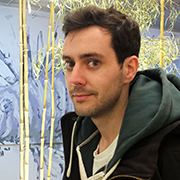 |
Ewen GallicEwen Gallic is a Ph. D. student in economics at the University of Rennes 1. His research interests focus on environmental economics and applied statistical modeling. |
| In recent years, he has worked on point processes and genealogical data with Arthur Charpentier who will be his postdoctoral supervisor next September. | |
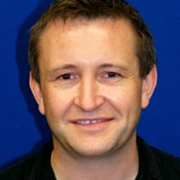 |
Gavin ShaddickProf. Shaddick's research interests include the theory and application of Bayesian hierarchical models and spatio-temporal modelling in a number of fields including epidemiology, environmental modelling and disease progression in rheumatology. |
| He is a co-author of Spatio-Temporal Methods in Environmental Epidemiology and the Oxford Handbook of Epidemiology for Clinicians. Of particular interest are computational techniques that allow the implementation of complex statistical models to real-life applications where the scope over both space and time may be very large. Publications have included methods for estimating personal exposures to environmental hazards, detecting increased risk around putative point sources of pollution, incorporating spatial modelling into studies of the effects of pollution on health and the global estimation of air quality and the associated burden on health. He is also actively engaged in research with the power industry, using big data and data reduction techniques to model demand profiles, forecasting demands and identifying customer profiles. | |
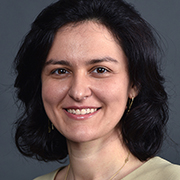 |
Georgiana OnicescuDr. Onicescu is Assistant Professor at Western Michigan University. She received a PhD in Biostatistics from the Medical University of South Carolina in 2015 and a Master of Science in Biostatistics from Johns Hopkins Bloomberg School of Public Health. |
| Her research interest are in applying and developing statistical methods in spatial statistics for public health and medical research. She has published more than 20 peer-reviewed articles in various journals and presented her research at many national and international conferences. | |
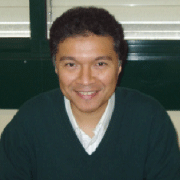 |
Giovani SilvaGiovani (Loiola da) Silva is Professor of Statistics (Department of Mathematics - Instituto Superior Tecnico) at the University of Lisbon (Portugal), where he is also member of the Centre of Statistics and Applications CEAUL, |
| dealing with different research problems/projects in Statistics. His main research interests are in survival analysis, spatio-temporal models and joint generalized linear and additive modelling, in particular under a Bayesian approach. He has also been involved in the development of survival analysis with research groups of the Oncology Portuguese Institute of Lisbon, as well as of spatial statistics with research groups of some Canadian, Brazilian and Portuguese universities. He is associated editor of the Brazilian Journal of Probability and Statistics and guess editor of RevStat - Statistical Journal. | |
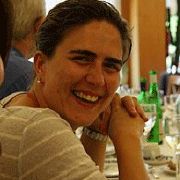 |
Inês SousaInês Sousa is currently Assistant Professor at the Department of Mathematics and Applications of Minho University. She has a PhD in Medical Statistics at Lancaster University and her main research interests are in longitudinal and survival data analysis, mainly motivated by data from biomedical or environmental sciences. |
 |
Jo RøislienJo Røislien is a Professor of medical statistics at the University of Stavanger, Norway. |
|
Røislien holds an MSc in industrial mathematics (1998) and a PhD in geostatistics (2004), before turning to biostatistics and medical research where he did his postdoc, and has since co-authored almost 100 peer reviewed research papers within the health sciences. His focus has been on the introduction and application of non-traditional mathematical and statistical methods into various medical research fields, ranging from gait analysis and addiction, to obesity and pre-hospital critical care. Røislien is one of Scandinavia’s most renowned science communicators, and has hosted several science TV-series for a general audience in Norway and Scandinavia, on mathematics, statistics, engineering and life sciences. |
|
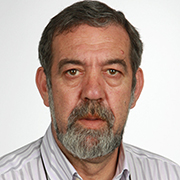 |
João GamaJoão Gama received his Ph.D. in Computer Science in 2000. He is a senior researcher at INESC TEC. |
| He has worked in several National and European projects on Incremental and Adaptive learning systems, Ubiquitous Knowledge Discovery, Learning from Massive, and Structured Data, etc. He served as Program chair at several Machine Learning and Data Mining conferences. He is author of a monography on Knowledge Discovery from Data Streams and more than 200 peer-reviewed papers in areas related to machine learning, data mining, and data streams. | |
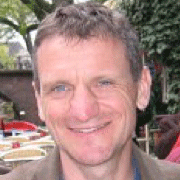 |
Jon WakefieldJon Wakefield is Professor of Statistics and Biostatistics at the University of Washington. Previously he has held positions in the Department of Mathematics (1990-1996) and the Department of Epidemiology and Public Health (DEPH, 1996-1999) at Imperial College, London. |
| At DEPH he was part of the small area health statistics unit (SAHSU) and worked on methods and applications in spatial epidemiology. More recently his research has moved from chronic disease spatial epidemiology to spatio-temporal modelling of infectious diseases and small area estimation. With respect to the latter, Dr Wakefield has a particular interest in estimation of outcomes in a developing world setting. He has a long-standing interest in Bayesian methods and computation and in 2013 published the Springer book “Bayesian and Frequentist Regression Methods”. He is a member of the Statistical Genetics Program Faculty and is an Affiliate Member in the Vaccine and Infectious Disease Division at the Fred Hutchinson Cancer Research Center. | |
 |
Jonathan ReadFollowing a PhD in ecology and postdoctoral work modelling vegetation and insect population dynamics, Jon moved into infectious disease modelling at the Universities of Cambridge and Warwick as a postdoc with Prof Matt Keeling. |
| He is currently a Senior Lecturer at Lancaster Medical School, Lancaster University, and holds an honorary Senior Lectureship at the University of Liverpool. His research interests lie at the interface of field work and modelling of infectious diseases, in particular the quantification of human behaviours relevant to the transmission of pathogens. Related interests include understanding the structure of contact networks, pathogen ecology and evolution, and improving human mobility modelling. He has designed and conducted epidemiological field studies on influenza in China, USA and Vietnam, and has past or ongoing projects on pneumococcal infection, rotavirus, norovirus, Ebola, and seasonal and pandemic influenza. MORE INFO |
|
 |
Jorge MagalhãesJorge Magalhães is Researcher in Public Health at FIOCRUZ and Coordinator of the Master's Program in Management, Research, Development and Innovation in Pharmaceutical Industry at FIOCRUZ/Farmanguinhos. |
|
He has several publications (papers, books, chapters) in the areas of management and technological innovation with emphasis in technological forecasting, collaborative intelligence and Big Data in Health. His research interests include high research and development on Cancer, HIV/Aids, Diabetes and Neglected Diseases to support Public Health and Pharmaceutical sector's using Big Data in Health, Web 2.0 and Science Information tools. He has a post-doctorade from the Université de Provence Aix-Marseille (France) in Competitive Intelligence Survey for public health. PhD Jorge was in management strategic for neglected diseases in Brazil at Federal University of Rio de Janeiro - UFRJ, Brazil. He is leader of the Research Group Knowledge Management and Prospecting in Health at CNPq in FIOCRUZ, RJ, Brazil. |
|
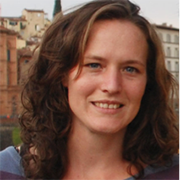 |
Katie HampsonKatie Hampson is a Reader at the University of Glasgow, UK, where she works on the epidemiological dynamics and control of rabies. |
|
Katie completed her PhD at Princeton University in the US in 2007 before returning to the UK on a Wellcome Trust fellowship. Her work involves close collaborations with public health and veterinary practitioners, governments, NGOs and international agencies involved in rabies control in Latin America, Southeast Asia and Africa, and includes long-term field research in Tanzania. Together with collaborators she is collecting and analysing data on rabies transmission and the impacts of mass vaccination programmes and uses a variety of statistical inference techniques to analyse surveillance data of differing quality and spatial scale. |
|
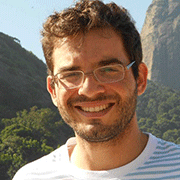 |
Leonardo BastosLeonardo Bastos is a Brazilian researcher working at Oswaldo Cruz Foundation. He graduated in Statistics at the Federal University of Minas Gerais, Brazil (2002), has a MSc in Statistics from the Federal University of Rio de Janeiro, Brazil (2003), |
| and PhD in Statistics from the University of Sheffield, UK (2010). He is an applied Bayesian statistician working on several epidemiology and biomedical research problems. His main research focus is developing Bayesian hierarchical models applied on epidemiological surveillance systems, hard-to-reach population datasets, and molecular dynamics. | |
 |
Madeleine C. ThomsonMadeleine Thomson is a Senior Research Scientist at the International Research Institute for Climate and Society (IRI) and Senior Scholar at the Mailman School of Public Health, Department of Environmental Health Sciences – at Columbia University, New York where she directs the IRI/PAHO-WHO Collaborating Centre (US 430) for Early Warning Systems for Malaria and Other Climate Sensitive Diseases. |
|
She is also a visiting Professor at Lancaster University in the UK. Her research focuses on the development of new data, methodologies and tools for improving climate-sensitive health interventions Her focus has been on vector-borne diseases (e.g. malaria, onchocerciasis, visceral leishmaniasis etc.) but in recent years has expanded to include air and water-borne infections as well as broader health challenges associated with food security/nutrition and disasters. She is developing a “health and climate” disciplinary interface and a “climate smart” public health community through the ‘Climate Information for Public Health Action (CIPHA)’ initiative. She trained originally as a field entomologist and has spent much of her career engaged in operational research in support of large-scale health interventions, mostly in Africa. She has a BSc. in Animal and Plant Biology (Sheffield 1982) an MSc. in applied pest management from Imperial College London (1985) and a Ph.D. from the University of Liverpool based on her field work on the ecology and identification of the Simulium damnosum vectors of Onchocerciasis volvulus in Sierra Leone (1989). She joined the IRI in May 2002. |
|
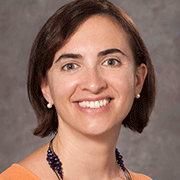 |
Magdalena CerdáMagdalena Cerdá is the Vice Chancellor’s Chair in Violence Prevention, and an Associate Professor in the Department of Emergency Medicine, at the University of California, Davis. |
| In her research, Dr. Cerdá integrates approaches from social and psychiatric epidemiology to examine how social contexts shape violent behavior, substance use and common forms of mental illness. Her research focuses primarily on two areas: (1) the causes, consequences, and prevention of violence; and (2) the social and policy determinants of substance use from childhood to adulthood. Dr. Cerdá has more than 100 publications in peer-reviewed journals, in addition to five chapters in major textbooks. Current studies include a simulation of the impact that different types of firearms disqualification criteria could have on population-level rates of firearm-related homicide and suicide, a national study on the impact that prescription drug monitoring program characteristics have on prescription opioid and heroin overdose, and a multi-country study on the health and social consequences of marijuana legalization. | |
 |
Maged N. Kamel BoulosProfessor Maged N. Kamel Boulos is a British scientist and Chair of Digital Health at the University of the Highlands and Islands, Scotland, UK. |
|
He worked before that at Plymouth University, of Bath and City University London. He has more than 26 years of combined clinical and informatics experience, spanning the clinical, industry and academic/research worlds (1990-2016). As well as his medical degree and Master’s in Clinical Dermatology, he holds a Master’s in Medical Informatics from King's College, University of London, and a PhD in Measurement and Information in Medicine (GIS) from City University London. Maged teaches and has >150 publications(h-index: 33) on a specialist range of medical/public health informatics and geoinformatics topics. He is Senior Member of IEEE, Fellow of the UK Higher Education Academy, and was Co-Chair of WG IV/4 within ISPRS Commission IV, 2008-2012. He served as Expert Adviser/External Expert for the WHO (European Office) and the ECDC. He is the founding editor (2001) and Editor-in-Chief of the MEDLINE-indexed Int J Health Geogr. His research received wide media coverage, and is/has been funded by national and international bodies, including World Health Organization EMRO and EURO; European Commission; UK TSB KTP Programme; UK AHRC; and Public Health Agency of Canada (funding one of his former PhD students). |
|
 |
Maria de Fátima de PinaMaria de Fátima de Pina graduated in Cartographic Engineering, in 1985, in the State University of Rio de Janeiro. |
| She concluded the Master´s in Systems and Computers (1994) in the Militar Institute of Engineering, in Rio de Janeiro, and the PhD in Biomedical Engineering (2001), in the Federal University of Rio de Janeiro. Since 1994 she is researcher of the Oswaldo Cruz Foundation, a teaching and research institute of the Health Ministry of Brazil. In 2004 she became researcher at the Biomedical Engineering Institute – INEB, of Porto University, where coordinates the research group of GeoEpidemiology. Since 2006 she is Associate Professor of the Medical School of Porto University, in the discipline of Epidemiology. Since 2015 she is Adjunct Professor in the Faculty of Engineering in the State University of Rio de Janeiro. Her main research interests are health inequalities and ageing of population. | |
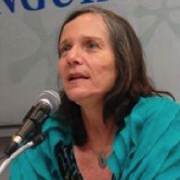 |
Marilia Sá CarvalhoMarilia Sá Carvalho is a Brazilian senior researcher working at Oswaldo Cruz Foundation. |
| She graduated in medicine at the Federal University of Rio de Janeiro (1979), has a Master in Public Health from the Oswaldo Cruz Foundation (1990), PhD in Biomedical Engineering from the Federal University of Rio de Janeiro (1997). Her main focus for some years has been on statistical models applied to epidemiology and public health problems, therefore she has published extensively on both infectious and chronic health conditions. Her main research interests now are in environmental epidemiology. She is involved in some of the studies about the recently emerged Zika virus. She is currently editor in-chief of Cadernos de Saúde Pública and associate editor of PLOS Neglected Tropical Diseases. | |
 |
Matteo ConvertinoDr. Convertino is a MnDRIVE Assistant Professor in the School of Public Health, Division of Environmental Health Sciences and Public Health Informatics Program, at the University of Minnesota. |
| At the same institution he is also Faculty Fellow at the Institute on the Environment, Institute for Engineering in Medicine, and at the Bioinformatics and Computational Biology Program. He is actively involved in the Risk Unit of the Center for Animal Health and Food Safety, and in the Ecosystem Health Division both of the College of Veterinary Medicine at the University of Minnesota. Internationally he is a Foreign Fellow of the International Institute for Applied Systems Analysis (IIASA) in Vienna, Austria. | |
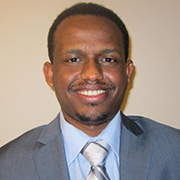 |
Mehreteab Aregayam currently working as a senior principal Biostatistician at Novartis Pharmaceutical Corporation. I have studied statistics at Addis Ababa University (AAU), Ethiopia and obtained a Bachelor of Science degree in Statistics with first class honors in 2006. |
| During my Bachelor program, I was awarded as best undergraduate statistics student by Belgian development cooperation prize and Getachew Boldia Foundation (GBF). I was then appointed as an assistant graduate at AAU Department of Statistics and worked there until August 2007. Thereafter, I was awarded a scholarship in September 2007 by Vlaamse Interuniversitaire Raad (VLIR) in Hasselt University, Belgium, after which I received a Master of Science degree in Biostatistics in 2009. In October 2009, I then started my doctoral training at Biostatistics and statistical Bioinformatics Center (L-Biostat) of Katholieke Universiteit Leuven, Belgium. During my PhD studies, I have participated with oral and poster presentations in several international conferences and have published six articles in international peer-reviewed journals. Following that, I worked as a post-doctoral scholar in the Division of Biostatistics and Epidemiology, Department of Public Health Sciences at Medical University of South Carolina. My previous work experience includes collaborative and methodological research in various areas. During my postdoc, I worked with my mentor Dr. Lawson in spatial statistics related to multiscale modeling project, having published four journal papers and submitted three papers for a possible publication. | |
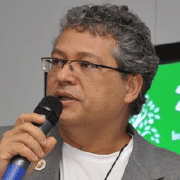 |
Miguel MonteiroAntonio Miguel V. Monteiro is a senior researcher at INPE (Brazilian National Institute for Space Research) where he leads the Urban Systems, Health and Environment Group and acts as the Head of the Space and Society Institutional Program. |
He has a degree in Electrical Engineering from the Federal University of Espirito Santo (UFES) and holds a DPhil in Electronic Engineering and Control/Computer Science (1993) from the University of Sussex at Brighton, UK. His research work involves the development of geographically-aware methods oriented to bridging the gap between research and services in public health programs and urban planning. He has been acting as the coordinator of national-scale projects organised as multi-institutional networks of cooperation centred on the use of spatial information tools for shaping informed urban/health public policies. His recent work is focused on using computer models and simulation as mediator objects for bringing up the discussion of the socio-territorial inequalities derived from the Brazilian urbanisation. He was head of the Image Processing Division (DPI, 1999-2006) and Chief Executive and Head of the Earth System Science Center (CCST, 2008-2010) at INPE. |
|
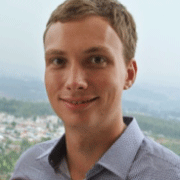 |
Oliver BradyOliver Brady is an epidemiological modeler with a research focus on vector borne diseases. He has a PhD from the University of Oxford and now works at the London School of Hygiene and Tropical Medicine as a research fellow. |
His research aims to improve how diseases are controlled by identifying and estimating gaps in disease surveillance. Past projects have included estimating the global distribution and burden of different arboviruses (dengue, Zika, chikungunya) as well as understanding the role of their principle mosquito vectors (Ae. aegypti and Ae. albopictus). This involves the use of advanced statistical and mathematical modelling techniques to map vector-borne diseases including how they vary over time in response to environmental changes. These methods also have broad applications in predicting and preventing emerging infectious disease spread. |
|
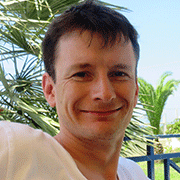 |
Paul BrindleyPaul is a postdoctoral researcher at the University of Sheffield. He is currently investigating the relationships between health inequality, deprivation and green space (www.iwun.uk). |
He graduated in geography at the University of Sheffield (1999) and holds a Masters in Geographic Information Science from the University of Nottingham (2000). He completed his PhD in the school of Computer Science at the University of Nottingham (2015). His doctoral work was concerned with the automatic generation of vague geographic units extracted from big data. Techniques were applied to form fuzzy neighbourhood boundaries and probabilistic settlement classifications. Paul has worked on over fifty projects as a researcher at the University of Sheffield, including England and Wales' official Rural-Urban Definitions and investigating the relationship between air pollution and health using small area statistics. His research interests focus on the socio-economic applications of Geographic Information Science (GISc)and in particular with mapping spatial inequalities and understanding places. |
|
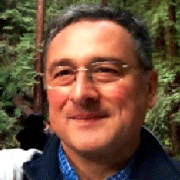 |
Pietro CeccatoPietro Ceccato trained originally as an agronomist and soil science scientist. He spent two years in Central African Republic working with local communities to improve agricultural practices. |
| He obtained a master’s degree in environmental management using decision-support systems and worked as a research scientist at the Natural Resources Institute in United Kingdom. He developed remote sensing products to monitor active fires and vegetation status for the purpose of assessing the risk of fire occurrence. He worked at the European Commission Joint Research Centre (Ispra, Italy) on the use of remote sensing to monitor vegetation status and used this work to obtain his PhD in remote sensing from the University of Greenwich, UK. Ceccato then joined the UN Food and Agriculture Organization in Rome to develop an early warning system for desert locust monitoring. He developed remote sensing products and geographic information systems to be used operationally by the Ministries of Agriculture in 21 countries in Africa and Asia. Ceccato joined the IRI in 2004. His current research activities include the development and integration of environmental remote sensing products into early warning systems for human health, agriculture, pest management and natural disasters. |
|
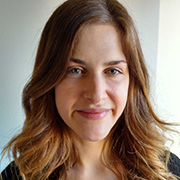 |
Rachel LoweRachel Lowe is an Assistant Professor and Royal Society Dorothy Hodgkin Fellow at the London School of Hygiene & Tropical Medicine. Her research involves modelling climate-sensitive disease risk and finding novel ways to communicate probabilistic forecasts to public health decision makers. |
Rachel graduated from the University of East Anglia in 2004 with a First Class BSc (Hons) in Meteorology and Oceanography with a year in Europe. She spent one year at the University of Granada in Spain reading Environmental Science. In 2007, she completed an MSc with distinction in Geophysical Hazards at University College London (UCL), where she received a UCL Graduate Masters Award. She then went on to obtain her PhD in Mathematics at the College of Engineering, Mathematics and Physical Sciences, University of Exeter (PhD Thesis: Spatio-temporal modelling of climate-sensitive disease risk: towards an early warning system for dengue in Brazil). Alongside her PhD, she was Network Facilitator for the Leverhulme Trust funded project EUROBRISA: a EURO-BRazilian Initiative for improving South American seasonal forecasts. As part of the project she collaborated with climate scientists and public health experts at CPTEC/INPE and the Oswaldo Cruz Foundation during long-term visits to Brazil, which resulted in her continuing participation in the Brazilian Climate and Health Observatory. From 2010-2012, Rachel was a Visiting Scientist at the UNESCO International Centre for Theoretical Physics (ICTP), where she worked with the Malawi Ministry of Health to develop predictive models for malaria and a platform to integrate climate information and rural telemedicine. From 2012-2016 she was a Postdocotral Scientist and Head of Climate Services for Health at the Catalan Institute of Climate Sciences (IC3), which has now merged with the Barcelona Institute for Global Health (ISGLOBAL). |
|
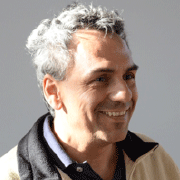 |
Renato AssunçãoRenato Assunção is Professor in the Department of Computer Science, Universidade Federal de Minas Gerais (UFMG) in Brazil. |
| He received his Ph.D. in Statistics in 1994 from the University of Washington, Seattle, USA. His current research is focused on the development of new algorithms and statistical methods to analyse spatial and space-time data. He is primarily concerned with the spatial analysis of risk appearing in such fields as epidemiological surveillance, geosensor networks, environmental problems, spatially variable risk. | |
 |
Robert DeardonRobert Deardon is an Associate Professor of Biostatistics with a joint position in the Faculty of Veterinary Medicine and Department of Mathematics & Statistics at the University of Calgary. |
| Most of his recent work has been in the area of infectious disease modelling, but he is also interested in Bayesian & computational statistics, experimental design, disease surveillance methods, spatio-temporal modelling, and statistical modelling in general. He currently has a research group of around 10 postdocs and graduate students. Previous to his post at Calgary he had a 8-year long faculty position at the University of Guelph and postdoctoral positions at the Universities of Cambridge and Warwick. | |
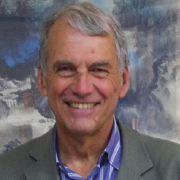 |
Robert HainingRobert Haining retired as Professor of Human Geography at the University of Cambridge in September 2015. He has long-standing research interests in the quantitative analysis of geographical data. |
| He has authored or co-authored over 150 articles and has published two books with Cambridge University Press: Spatial Data Analysis in the Social and Environmental Sciences (1990) and Spatial Data Analysis: Theory and Practice (2003). These books have provided an overview of the challenges facing those working with spatial data including: what it means to “think spatially”; problems of data collection and spatial representation; spatial sampling; exploratory data analysis; and relevant areas of statistical theory for small area estimation and hypothesis testing. One of his primary areas of applied interest includes the geography of health. He has worked in collaboration with colleagues at the University of Sheffield on evaluating the impact of air pollution on health status using small area statistics. The growing availability of small area statistics has been made possible by the digital revolution, the development of Geographical Information Systems (GISs) together with organizational changes that have made the collection of geocoded data by many public and private agencies today a matter of routine. But small area statistics raise many challenges for statistical analysis and the drawing out of robust conclusions from what is often “noisy” small area data. In recent years he has had the opportunity to work on the analysis of crime data in collaboration with various police forces in England and Wales and with Home office funding. Most recently, he and colleagues have worked on the development of new methods for evaluating the effectiveness of small area targeted police interventions. He has taught courses on spatial data analysis and spatial econometrics at the undergraduate and graduate levels both at Cambridge and at other universities around the world. | |
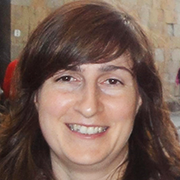 |
Sandra AlvesSandra Maria Ferreira Alves graduated from Faculty of Sciences and Technology, University of Coimbra in Mathematics (2001) and has a MSc (2005) and PhD (2013) in Biomedical Engineering from Faculty of Engineering of University of Porto. She is interested in statistical modeling of health events, epidemiology and spatial analysis. |
| She is a Professor at the School of Allied Health Technologies Polytechnic Institute of Porto (ESTSP.IPP), since 2002, in the scientific area of Biomathematics, Biostatistics and Bioinformatics. She has been a member of the Biomedical Engineering Institute - INEB since 2003, first as a student and since May 2013 has a researcher in GeoEpidemiology. | |
 |
Sandra Hurtado RúaSandra Hurtado Rúa completed her Ph.D. at the University of Connecticut under the supervision of Dr. Dipak Dey. Her thesis topic was "A New Class of Bayesian Survival Models and Beyond." |
| She was a postdoctoral associate from 2011 - 2014 in the Division of Biostatistics and Epidemiology at Weill Medical College of Cornell University where I did consulting as well as methodological research related to biological and clinical applications. She previously had completed an M.S. in Mathematics from Northern Illinois University and a B.S. in Engineering from the National University of Colombia. | |
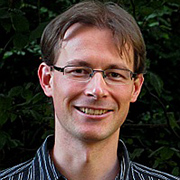 |
Sebastian MeyerSebastian Meyer is a postdoctoral researcher at the Friedrich-Alexander-Universität Erlangen-Nürnberg, Germany. |
| He is the current maintainer of the R package surveillance, which implements statistical methods for the temporal and spatio-temporal modelling and monitoring of epidemic phenomena. He holds a BSc and MSc in statistics from the University of Munich, where he has subsequently worked as a research assistant at the Department of Psychiatry and Psychotherapy. He recently (July 2016) completed his PhD in Biostatistics at the University of Zurich under the supervision of Leonhard Held. His PhD thesis elaborates on endemic-epidemic modelling approaches for both individual-level (point pattern) and area-level (count time series) data of infectious disease spread. | |
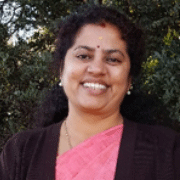 |
Sulochana ShekharDr. Sulochana Shekhar is currently an Associate professor in the Department of Geography, School of Earth Sciences at the Central University of Karnataka. |
| She is the Dean of School of Earth Sciences & Head of Department of Geography and has more than 16 years of teaching & research experience. Her research interests are in urban geography and geospatial science. She is the proud recipient of Commonwealth Academic fellowship (2013) and Endeavour Research fellowship (2016). Her current research is the outcome of collaboration with Prof. R P Haining, Department of Geography, University of Cambridge. | |
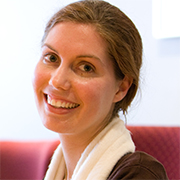 |
Susanna CrambSusanna Cramb is a postdoctoral Spatial Modeller at Cancer Council Queensland with adjunct appointments at Queensland University of Technology and Menzies School of Health Research. |
| Her primary research interest is in using Bayesian spatial and spatio-temporal models to understand how cancer outcomes vary by location. Susanna has worked in epidemiological research for over a decade and her publications have been cited over 1400 times. Queensland Health utilised Susanna’s research when setting their cancer care objectives. Susanna previously worked at the School of Population Health, University of Queensland and was involved with large epidemiological projects, including the 2003 Australian Burden of Disease study, among others. Susanna is an alumnus of Queensland University of Technology, James Cook University and the University of Queensland. | |
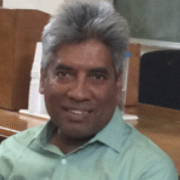 |
Syed Ashfaq AhmedProf. Syed Ashfaq Ahmed is currently Professor at the Department of Applied Geology, Kuvempu University, Karnataka. He previously headed the Department of Geology at Central University of Karnataka, Gulbarga. |
| He has over two decades of teaching and research experience. A former Commonwealth Fellowship awardee at the University of Nottingham, England. His research interests lies in the fields of remote sensing and image processing. | |
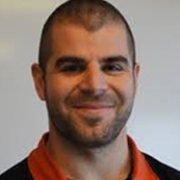 |
Theodoros EconomouTheo Economou is a joint University of Exeter/UK Met Office lecturer in Statistical Science. |
| He is an applied statistician with experience in a variety of fields, primarily environmental sciences (e.g. modelling of extreme European storms, prediction of hail events) but also in water engineering (e.g. modelling water pipe brekage), epidemiology (e.g. infectious disease modelling), public health (e.g. modelling occurrence of hip fractures), biology and social science. His specific research interests include applied Bayesian modelling, space-time modelling of environmental processes, the analysis of track data and decision analysis. | |
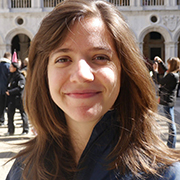 |
Theresa SmithTheresa Smith is a lecturer in statistics in the Department of Mathematical Sciences at the University of Bath. She completed her PhD in statistics at the University of Washington in 2014, and until recently (July 2016) was a senior research associate in spatial epidemiology in the medical school at Lancaster University. |
| Her research has focused on spatial-temporal models and computation for Bayesian methods. Her interests include point processes and small area estimation applied to public health issues including cancer epidemiology and gastrointestinal illness. | |
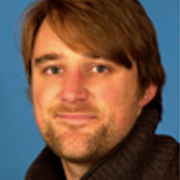 |
Tom ClemensA health geographer by background, Tom’s career has focused on the social and spatial determinants of health. |
He completed a BA(Hons) degree in Human Geography from Lancaster University followed by a Master of Research (MRes) (supervised by Professor Robin Flowerdew) and PhD degree in health geography at the University of St Andrews. His PhD, supervised by Professor Paul Boyle, examined the association between worklessness and mortality using causal modelling techniques. After completing his PhD, Tom began working as a postdoctoral research fellow at the University of St Andrews before moving to the University of Edinburgh to continue postdoctoral work with Professor Chris Dibben. Throughout his PhD and postdoctoral positions Tom has worked extensively with routinely collected administrative health and social data and has developed linkages between them and a variety of environmental datasets. Currently Tom is working on a number of projects in the area of environmental epidemiology and the social determinants of health including the effects of air pollution exposure during pregnancy on birth outcomes and fetal growth, effects of the housing environment for general health outcomes and the relationship between various characteristics of the residential environment during pregnancy for health related behaviours and birth outcomes. |
|
 |
Trevelyan J. McKinleyTJ obtained a PhD in Statistics (2007) at the University of Exeter and in October 2006 he joined the Cambridge Infectious Diseases Consortium at the University of Cambridge as a Research Associate in Statistics, and in January 2014 became a Senior Research Associate in the Disease Dynamics Unit at the Department of Veterinary Medicine. |
| As of November 2014 he is a Lecturer in Mathematical Biology at the University of Exeter. He is interested in applying and developing statistical methodology for the study of infectious diseases. I his PhD thesis he explored the feasibility of using spatial survival analysis as a means of predicting the path of infection in large-scale infectious animal disease epidemics. More recently he has been investigating the use of Approximate Bayesian Computation (ABC), pseudo-marginal and nested sampling techniques as alternative means of estimating parameters in epidemic models where the calculation of the likelihood is often far from trivial. His most recent work has involved developing reversible-jump MCMC techniques for fitting large-scale models for the spread of bovine tuberculosis across the UK cattle movement network. | |
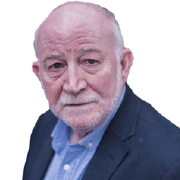 |
Trevor BaileyTrevor Bailey is Professor of Applied and Computational Statistics at the University of Exeter, UK. |
| His research interests are in spatial statistics (particularly: spatial epidemiology, spatial modelling, multivariate spatial methods) and also in applied statistical modelling more generally. Much of his research has been collaborative involving academics and professionals from a variety of different fields including medicine, public health, geography, computer science, commercial organizations and government agencies. He is a Fellow of the Royal Statistical Society and of the Higher Education Academy and a Chartered Statistician. | |
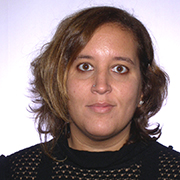 |
Veronica J. BerrocalVeronica J. Berrocal is an Associatie Professor in the Department of Biostatistics at the University of Michigan. |
| Veronica obtained her Ph.D. in Statistics at the University of Washington in 2007 where she worked on probability weather forecasting with spatial dependence. Between September 2007 and August 2010, Veronica held a postdoctoral position at the US Environmental Protection Agency, Duke University and SAMSI, respectively, where she worked on spatial statistical models for air pollution, and environmental health studies linking air pollution to birth outcomes. In September 2010, Veronica joined the Department of Biostatistics at University of Michigan as an Assistant Professor where she is continuing her research in spatial, environmental and Bayesian statistics. | |
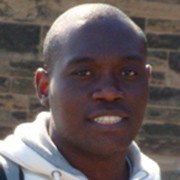 |
Victor AleganaVictor Alegana is a post-doctoral research fellow in the Worldpop group at the University of Southampton where he obtained his PhD in 2014. |
| He has been involved in malaria epidemiology research in Africa since 2006 on modelling and mapping malaria incidence in low malaria transmission settings, developing spatial databases of healthcare providers in several countries in East and Horn of Africa in addition to estimating healthcare utilisation using nationally representative household surveys. His current research focuses on optimizing the use of Health Management Information Systems (HMIS) data; the impact of human mobility on health systems, malaria elimination; and the use of mobility data for mapping health outcomes and interventions. | |
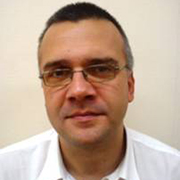 |
Victor Javier Del Rio VilasVictor Del Rio Vilas is currently at the Dept of Epidemiology, School of Veterinary Medicine, University of Surrey (UK). |
| Previously, he was a consultant with the Pan American Health Organization (PAHO/WHO), based in Rio de Janeiro (Brazil) with regional responsibilities. He advised Ministries/Departments of Health on epidemiology, surveillance and control measures for a number of diseases such as rabies, leishmaniasis, hydatidosis, and on zoonoses programmatic issues across the region. He previously worked in Uzbekistan implementing the Biological Threat Reduction Program (Defense Threat Reduction Agency, US DoD), and as veterinary advisor and epidemiologist for UK´s Department for Environment, Food and Rural Affairs (Defra) and the Veterinary Laboratories Agency, respectively. | |
 |
Wang YuAs a lecturer in Global Health, Dr. Wang Yu joined School of Public Health, Peking University in 2014. His key research interests include health systems, global health governance, and applications of GIS in health studies. |
| As the Principle Investigator, he leads the China Prosperity Fund Project on AMR education and training in China funded by UK’s Foreign and Commonwealth Office, as well as a governmental evaluation programme on Chinese medical teams in developing countries, funded by Beijing Municipal Government. Dr Wang is also an active player in promoting the applications of GIS and spatial data analysis in public health studies at Peking University. He set up a research network in the University which brings young researchers working together to apply GIS and spatial data analysis techniques in several public health projects. He also deliveries an undergraduate course on GIS and global health at the University. Dr WANG has a PhD degree (2014) in Human Geography and an MPhil degree (2008) in GIS and Remote Sensing from the University of Cambridge, as well as a first class honors BSc degree (2007) in Environmental Science from Imperial College London. | |
Address: Rua Alfredo Allen, 208 | 4200-135 Porto, Portugal
Phone: +351 220 408 800 | Email: events@i3s.up.pt